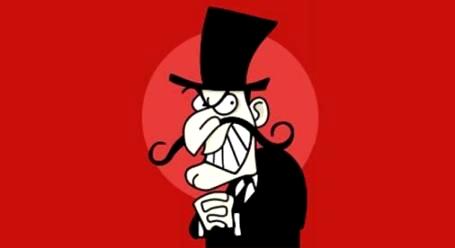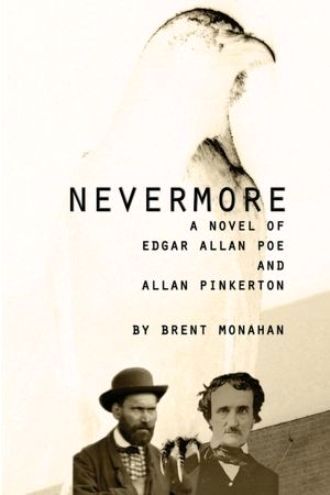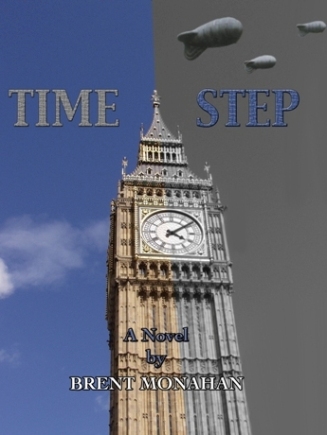

Brent Monahan asks the question:
Must we always like the protagonist?
Why villians are loveable!
IN THE "SPECIAL PAGE" ARCHIVES:
Mark Crislip
John Russo
Joe R. Lansdale
Ellen Datlow
Lisa Morton
Owen King
John Shirley
Joe McKinney
Who Said We Have to Like the Protagonist?
by Brent Monahan
I have read all manner of literature for more than fifty years, written professionally for thirty-five, and taught novel and screen writing for ten. During that span I have on at least a dozen occasions come across in print the well-intended admonition that would-be-published authors should, "...create a main character that your readership will like." This figure is also referred to as the hero(ine) or protagonist.
For many tales, this is good advice. Robin Hood, Heidi, D'Artagnan, Don Quixote, Beowulf, Kinsey Milhone, Judah Ben-Hur, Rebecca of Sunnybrook Farm, Dorothy Gale, Horatio Alger, Andy Hardy are all likeable characters.
But what about Holly Golightly of Breakfast at Tiffany's fame, or Scarlett O'Hara, Hamlet, Sherlock Holmes, or Long John Silver? Are they not all main characters in very successful fiction? Is Holly not a poseur, Scarlett a vain and desperate schemer, Hamlet indecisive to a deadly fault, Holmes overbearing, overproud, and addicted, and Long John the ultimate two-face?
In Bram Stoker's immortal novel is the "main character" the likeable protagonist Jonathan Harker? Then why is the title Dracula, and why is this ruthless, murderous creature the center of attention? Why does Oscar Wilde choose to tell us about The Picture of Dorian Gray and not The Picture of Blue Boy? Which character is more interesting to us: Frankenstein or his monster? Certainly the monster is to be pitied since it did not ask to be reanimated, but does it not also seek revenge, not also kill? Is he not a cobbled-together figure even a mother could not love? Would we let our daughters date him?
Think about five novels that rank year after year in the Top Ten pantheon of American literature: To Kill A Mockingbird, Tom Sawyer, Huckleberry Finn, The Great Gatsby, Catcher in the Rye. Certainly narrator Scout Finch and her father, lawyer Atticus Finch, are paragons of likeability. Tom Sawyer and Huck Finn are each in their way scoundrels, yet loveable ones. But Jay Gatsby? Daisy Buchanan? Even narrator Nick Carraway? All damaged, pitiable wretches from the Lost Generation. Then there's Holden Caulfield, who I would gladly take a baseball bat to.
So, as that classic unlikeable character The Grinch asks (in the film), "What's the deal?"
I believe the more preferable admonition to would-be authors is another four-letter word: Create a main character that will make your readership care. Rebecca of Sunnybrook Farm is not nearly as fascinating as Daphne du Maurier's offstage character Rebecca because she's so unflaggingly predictable in her good behavior and attitudes. Mystery? A back story? No way. Andy Hardy and the Hardy boys are a bore to anyone over twelve. They are as stock and unvarying as commedia del arte characters. We know they aren't real, because virtually every real person is flawed and has weaknesses. The most engaging Mother Theresa to watch was the double in a skit in which she loses her temper and trashes a hotel room.
https://www.youtube.com/watch?v=IkuYG8qdXMY
(Turn off the sound if you're offended by bad music with bad words).
Fairy tales must end after the line "And they lived happily ever after" because by definition there is no more conflict there. We don't like Holly Golightly's phoniness because we know she has self-image and goal problems to the point that she can't even commit to giving her cat a name. But we want her to accept the young man's love and stop pretending her way through life, to find happiness in reality. We know there's a fun person inside, and we care enough to learn if she can struggle into the light. We take a virtual trip via Truman Capote's finely-honed knowledge of the human condition and of words because we know from our own lives that those who are flawed often travel interesting physical and emotional journeys ("arcs" in Hollywood).
We are told by Margaret Mitchell in her novel's very first sentence that Scarlett O'Hara was not beautiful. Then we see how every male is attracted to her. The apparent discrepancy, we learn, is that her beauty is only skin and bone structure deep. She is spoiled and willful and then finds herself on the losing side in a great war and needing to claw her way back to gentility. I for one never gave a damn for the woman, but I certainly cared to learn if she ended up unluckily or unhappily in spite of brains and beauty (and I did suffer through the more than 900 pages of quintessential woman's romance novel as well as viewed the movie many times). I loathed Captain Ahab throughout the daunting Melville novel, but I cared about his obsession and what havoc it visited upon the unfortunate crew of the Pequod. I was rooting for the whale right to the end and was haunted by Ahab's beckoning arm. (Another challenge to finish)
Probably my favorite character in literature is Ebenezer Scrooge (Boy, could Dickens invent image-rich names!). Here is a man we hate on the first page, then feel increasing pity for as the Ghost of Christmas Past shows his lonely upbringing and loss of the only creature who loved him then, his sister. But it is the money lender's willingness to reverse his negative attitudes and to treasure Christmas in his heart every day of the year that brings the tears. I always caution my students to differentiate verbally and in print between Old Scrooge and New Scrooge.
I brought these realizations to bear when reimagining the classic vampire in my novel The Book of Common Dread and its equally well-received sequel The Blood of the Covenant. Vincent DeVilbiss is first seen as an apparently remorseless murderer, but later I reveal a conscience and much residual humanity. I craft my tale to dare the reader to go so far as to identify with Vincent's desire to live forever and enjoy our astonishing planet. I reveal him to have been a young, deeply disillusioned priest in the Rome of the Borgias, seeing no evidence of God. Then I provide a demonic deal similar to Faust's to allow him to transcend the stock blood-suckers rising nightly from coffins. Later, I reveal repugnant character weaknesses in this man who chose to change to monster.
In short, I construct the novel to take my readers on a vicarious rollercoaster ride of shifting attitudes and emotions. Fans who have contacted me or spoken to me at conventions and clubs have been about 50/50 in their opinion of this character, but they either REALLY hated him or REALLY liked him.
In the same novels I explore as well the clichés of the timid librarian turning from mouse to man and the sad beauty he loves from afar with the dark secret, careful to detail them into three-dimensionality, so that I present three chances to enrapt the reader with a character he or she can "get into" my guidance: Give the reader a reason to turn the next page. Make him or her care.
About Brent Monahan

Brent Monahan teaches novel writing and TV/Film writing at Rutgers University, in the classroom and online.
The Book of Common Dread and its sequel, The Blood of the Covenant have been released again. Reviews and ordering info can be found at www.brentmonahan.com.
His these and recent novels, Nevermore and Time Step, are available in e-print via Kindle or in book print at Amazon.com or www.WTFbooks.net
Two of his novels have been turned into motion pictures, with stars Peter Fonda, Oliver Reed, Sissy Spacek, and Donald Sutherland.
Learn more about Brent HERE
See all of Brent's books HERE


